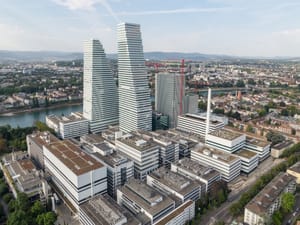Manchester is a regional city in the northwest of England, located 200 miles (322 km) north of London. Manchester represents the largest city region economy outside London, with a gross value added (GVA) of £78.7 billion (€91.7 billion). Manchester was the birthplace of the Industrial Revolution, and it continues to be a city that innovates across a variety of sectors. The Data City 2020 report shows how Manchester outperforms all other major UK cities in the fields of AI and data, advanced materials, cyber, construction tech, eCommerce, IoT, MedTech and service design.
The city has access to a large talent pool, with a population of over seven million people within a one-hour travel time of the city centre and the largest travel-to-work catchment population of any regional UK city. The city region has over 100,000 students enrolled at its five universities: The University of Manchester, Manchester Metropolitan University, University of Salford, University of Bolton, and University Academy 92. Combined, these universities produce around 40,000 high quality graduates each year. Importantly, over 60 per cent of graduates who study in the northwest stay in the region to work – with 51 per cent staying in Manchester.
The University of Manchester is the most important academic establishment in the city, with close to 41,000 students in total and c.12,000 students in the Faculty of Science and Engineering. The university campus also hosts the specialist research centres of The Henry Royce Institute, The Alan Turing Institute and The National Graphene Institute. It ranks 51st in the Times Higher Education World University Rankings 2024 and 32nd in the QS World University Rankings 2024. About 36 per cent of its students are from overseas.





